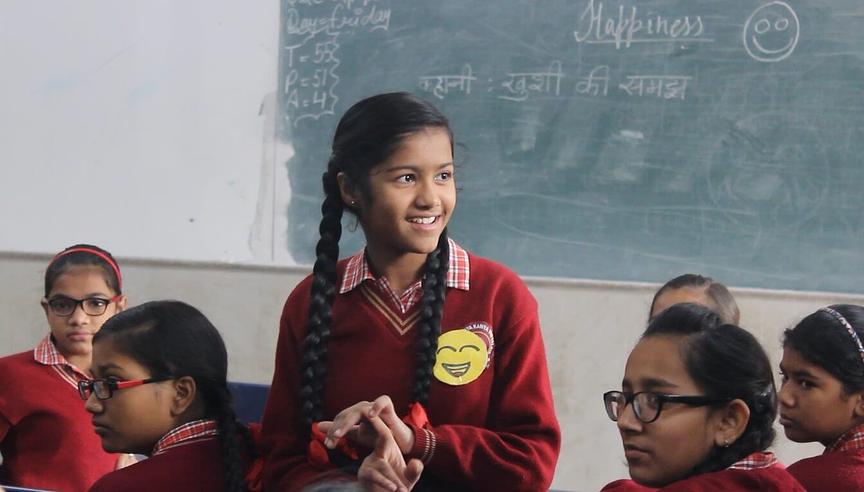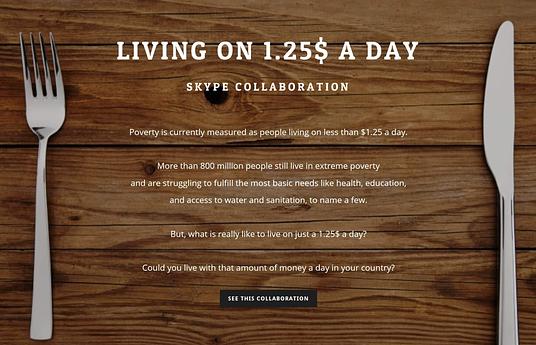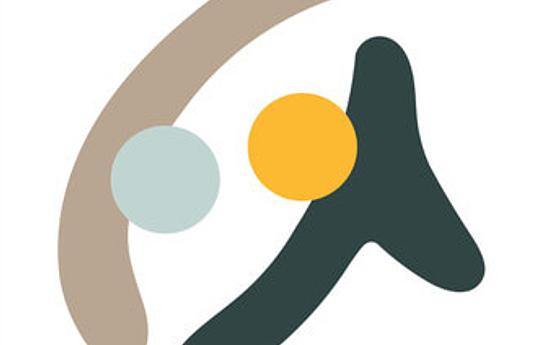This is a critical time for education systems worldwide when we need to deeply question the nature of education being imparted in our education systems. We have made significant progress in improving the material well-being of humankind through the industrial model of education but perhaps at a calamitous cost to an individual’s capacity to think critically about the true nature of progress and happiness. Furthermore, the environment in which children grow up today is highly unpredictable, with constantly changing social and economic dynamics posing a significant challenge for society and families on how children should be nurtured because students today face stressors at a scale that has not been experienced before. This creates an urgent need to implement a curriculum which not only promotes development in literacy and numeracy but also addresses the well-being and happiness of students with a strong emphasis on the co-scholastic skills of mindfulness, self-awareness, critical thinking, reflection & inner stability. This is the basis of the Happiness Curriculum conceived and implemented in Delhi.
The curriculum is based on a model for happiness, in which four dimensions of human living are expressed as an integrated form of the material, behavioural, intellectual and experiential aspects. These correspond to our senses, feelings, learning (understanding) & awareness. Put together, these form a ‘happiness triad’. In other words, human beings seek fulfilment from all these aspects of living which can be thus stated-
- Happiness derived through our senses,
- Happiness gained from the feelings we express in our relationships with self, friends, family and environment
- Happiness brought about by learning and awareness (change in behaviour according to constructive understanding)
A person who derives happiness from learning and awareness and is able to sustain his/her happiness is balanced in the face of difficult situations and is able to retain a sense of calm and peace. This individual will also be empathetic, compassionate and will be able to find meaning and purpose in life.
Learners today are exposed to a high level of sensory happiness in its different varieties and forms which has become the primary goal to attain in life. We hence see a thrust for higher incomes, which education seeks to fulfil with intense levels of skill building. However, the crucial aspects of harmony, feelings in relationships and understanding & awareness are largely ignored in current education. The focus is thus partial (only material), leaving the aspects of feelings/relationships and learning/awareness unaddressed. As a result, the resulting happiness too tends to be partial and short-lived. Thus, even a highly skilled and competent individual can remain unhappy and dissatisfied despite excellent academic qualifications, due to conflicting emotions within and lack of clarity of lasting happiness.
The Happiness Curriculum seeks to bridge the above-mentioned gap. It is an endeavour to guide the attention of students towards exploring, experiencing and expressing happiness in not just the momentary but deeper and sustainable forms as well. This will enable the learner to comprehend happiness within self, relationships, society and nature.
The curriculum looks to create a stimulating environment for learners from Nursery to Grade 8 through a variety of methodologies to explore, experience and express happiness. Methodologies such as guided practices for mindfulness, storytelling with open-ended discussions, reflective conversations and activities designed for rapport building will be used to achieve this goal.
Perhaps the most laudable aspect of the curriculum is its ambitious aspiration to rise above mere tokenism and aim to help every child in all the government schools of Delhi. The curriculum is being transacted every day (according to a structured timetable, with a teacher’s handbook to guide the lessons) across all schools touching all students from Nursery to 8th Grade.
The Happiness Curriculum is a landmark first step in expanding the scope of a public school education system to move beyond mere utilitarian objectives and enable the holistic development of each child by including it in the mainstream academic structure. I truly believe that it has the potential to provide a solution to some of the very serious afflictions in modern society, namely corruption, terrorism and environmental degradation. It is my fervent hope that this curriculum will lead the way to a systematic inquiry into the science of emotions and happiness with the same rigour we have shown in other fields of study that have advanced the material standards of human life.



